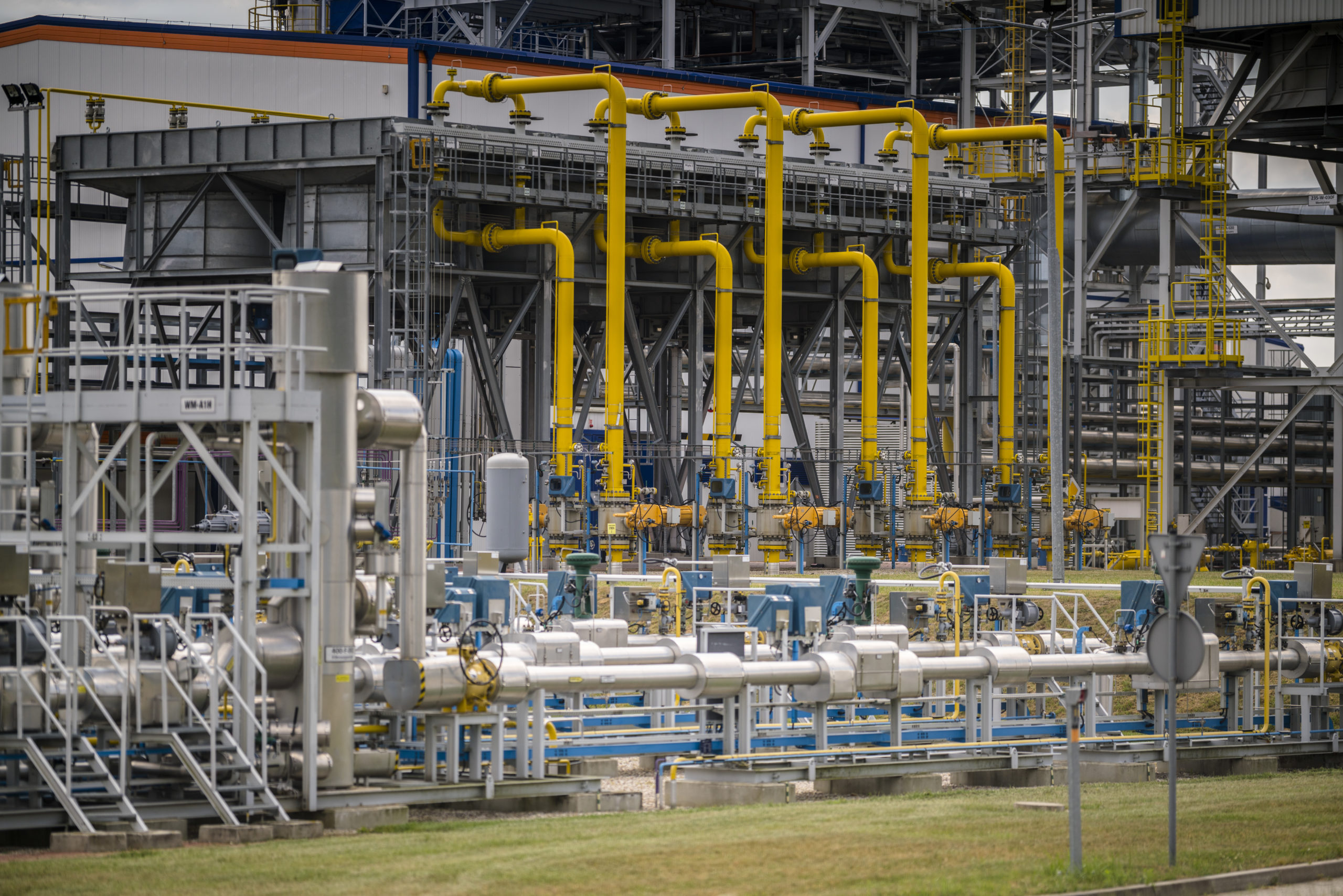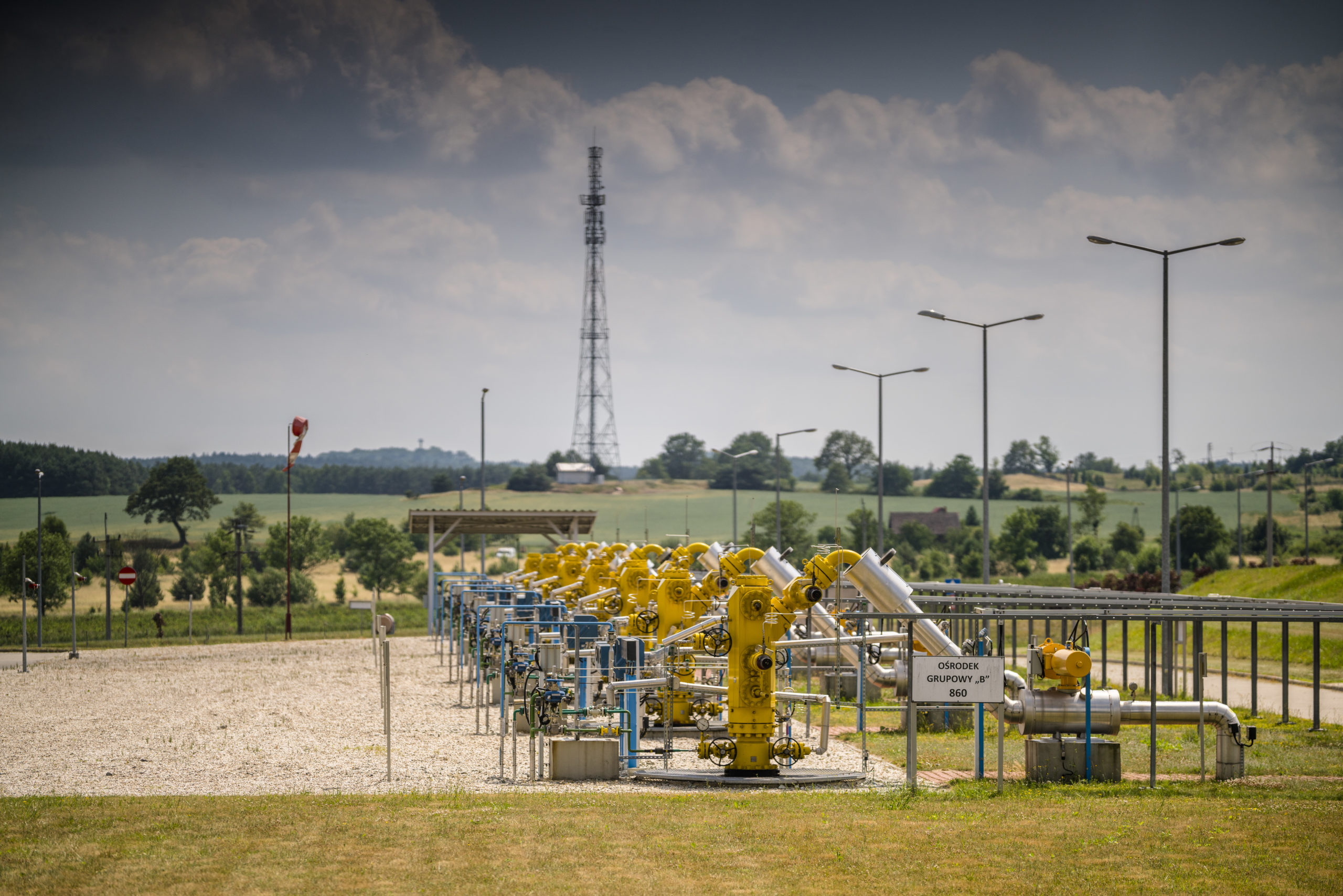Development prospects

Prospects for wholesale trade in Poland
PGNiG’s medium- and long-term focus is to perform its long-term contract obligations concerning minimum offtake (Yamal contract) and contracted volumes of LNG, delivered on an ex-ship (Qatargas and Cheniere) and free-on-board basis (Venture Global LNG, Inc., Port Arthur LNG, LLC), taking into account that free-on-board contracts provide PGNiG with flexibility to sell LNG on foreign markets.
If an unforeseen increase in demand for gas fuels occurs, PGNiG will purchase natural gas under short-term contracts from the neighbouring countries or on the LNG market. The planned increase in the capacity of the LNG terminal in Świnoujście – to approximately 6.2 bcm in 2022 and 2023, and then to approximately 8.3 bcm from early 2024 – will enable increased volumes of LNG to be delivered to Poland.
As a result of investment decisions made by the transmission operators of Poland and Denmark, and thus the consent for joint execution of the Baltic Pipe project, PGNiG will be able to obtain contracts for gas supplies from the Norwegian Continental Shelf (from its own deposits and from imports).
Prospects for wholesale trade abroad
PST
Due to the persistence of the pandemic, PST expects reduced trading activity in the wholesale markets, which will mainly translate into a reduction in PST’s proprietary trading activities.
Notwithstanding the temporary restrictions related to the pandemic, PST will continue to develop its business in the key strategic areas including, in particular, LNG trading, supply of gas from the North Sea and the Norwegian Sea area and gas trading in Central and Eastern European markets.
PST plans to expand its LNG business to include FOB deliveries both on the spot market and under medium-term contracts. The expansion of commercial and logistical competence in LNG freight management will allow the Group to further develop its LNG trading business to create opportunities to optimise long-term contracts from 2022 onwards. In order to fulfil the long-term FOB supply contracts, PST has executed contracts to charter two LNG vessels that will be able to receive and transport the contracted LNG volumes.
In preparation for the start of gas supplies to Poland via the Baltic Pipe, the company has increased its activity on the NCS and the DCS. The purpose of the activity is to enable natural gas supplies from the NCS and the DCS to Poland. PST is also starting to procure and sell natural gas liquids (propane / butane / paraffin / ethane) from its operations on the NCS.
PST is taking steps to develop its business in Central and Eastern Europe. Particularly important for PST is business expansion into and in markets which, thanks to the emerging gas infrastructure, will gain strategic significance for the Polish market directly, i.e. Slovakia, Ukraine and Lithuania, and indirectly, such as Hungary, Latvia and Estonia. Building competence and strengthening presence in the region will enable the company to gain an additional market for gas from the northern direction and optimise its gas portfolio using, among other things, the storage systems in Poland and Ukraine.
PGNiG
On November 29th 2019, PGNiG signed a five-year exclusive contract for the use of the low-scale LNG collection and handling station in Klaipėda. It is a major step in PGNiG’s efforts to build competence and market position in the markets of Central and Eastern Europe and the Baltic Sea basin.
Through its presence in Klaipėda, PGNiG has also gained better access to the small-scale LNG market in the Baltic States, and increased competitiveness of its services for customers from the north-eastern Poland and Central and Eastern Europe. Since the start of operations on April 1st 2020, the Company has delivered to Klaipėda three shipments by sea, and 231 tanker trucks have left the terminal with a total freight of over 4.1 thousand tonnes of LNG, mostly intended for the Polish market.
In addition to the transshipment facilities, the terminal also offers bunkering of ships. This allows PGNiG to build competence in this area and in the future to make use of the potential of the Świnoujście terminal, which is being expanded.


Prospects for retail trade in Poland
The company believes that there is growing potential for new gas applications in Poland and the associated market development opportunities. This is reflected in data showing the relatively low consumption of gas fuel in the country compared with other European economies. The growth prospects are driven by, among other things, the need to replace environmentally unfriendly heating systems in more than 3 million homes burning solid fuels. Natural gas is among the technologies supported by central and local government programmes (e.g. Clean Air). As a result, Poland is witnessing a gradual process of gasification and an increase in the share of gas in the generation of electricity and heat.
The importance of natural gas in road (LNG and CNG) and maritime (LNG) transport is expected to grow significantly, largely due to new EU regulations.
On the other hand, major technological advances, modern and energy-efficient building construction/insulation systems (and new standards in this respect), the turn towards renewable energy sources and new multi-family buildings typically without gas installations – have and will continue to have an impact on customers’ expectations and the model of solutions offered to them. Natural gas is the main driver of the company’s results, but the market is creating new opportunities to expand the range of offered products.
PGNiG OD, acting in accordance with the principles of sustainable development and in order to address customer needs and environmental challenges, is introducing solutions based on renewable energy sources and increasing energy efficiency. Thanks to the possibilities offered by LNG, PGNiG OD supports the process of national gasification by supplying fuel to island networks and develops the offer of LNG supplies for the shipping, manufacturing and transport industries. The company builds CNG/LNG fuel stations, launches new products (such as assistance service plans) and partners with local governments (e.g. under the „Switch to gas” programme of supporting transition to low-emission heat sources ones).
Development prospects and challenges for the future
In accordance with the schedule for the ‘Kosakowo CGSF – Construction of Five Caverns, Cluster B’ project, in 2021 the construction of the K-7 and K-10 chambers at the Kosakowo CGSF will be continued to expand the storage capacities. The contract for the project provides for the completion of all the works in 2021. Upon completion of the construction of cluster B, the active capacity will be increased to at least 250 mcm.
GSP also plans to expand its storage business, in particular storage of energy (in the form of hydrogen), hydrogen, biomethane and liquid fuels, in order to broaden its customer base and secure new revenue streams. The offered services will include preparation, execution and supervision of underground energy and fuels storage projects and subsequent offering of the storage capacities.